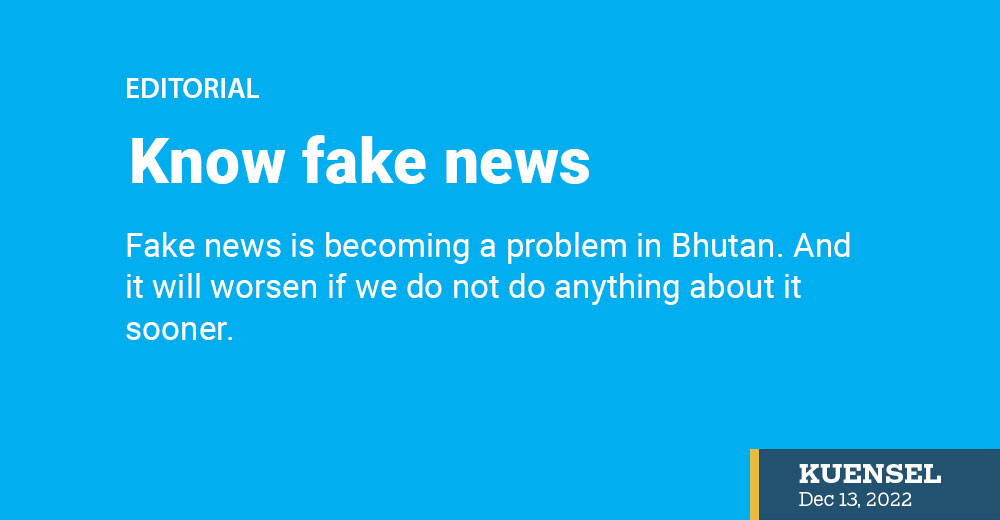Fake news is becoming a problem in Bhutan. And it will worsen if we do not do anything about it sooner.
According to a Bhutan Media Foundation study last year, 64 percent of Bhutanese encountered disinformation, which is false information created with the intention of profiting from it or causing harm’ 35 percent have fallen victim to disinformation, and over 10 percent have spread disinformation knowingly or unknowingly.
Social media is already warming up to the National Elections 2023. Various anonymous accounts are publishing aspiring the pictures of the candidates and their details. The number of anonymous social media accounts with political agendas misinforming and disturbing the masses is growing.
This is a worrying trend.
With an estimated social media penetration rate of 96 percent in urban and 87.6 percent in rural areas, fake news can create huge problems in the free and fair conduct of our elections if our agencies continue to bask in the sun.
From experience, we saw during the 2018 parliamentary elections, people through many Facebook groups posted and shared contents that defamed the political parties they did not support. Fake news encompasses news which misleads and is factually incorrect and endangers trust in media and journalism.
Our Social Media Rules and Regulations to moderate and regulate the use of social media come into effect only during the election period. By the time an election starts and rules come alive, damage is done.
Despite awareness campaigns, Bhutanese are still falling victim to online scams and fake news because our folks are easily trusting and gullible.
If a mechanism is not launched to control or fight anonymous account users who are spreading misinformation and disinformation, there is a risk that every one of us will fall victim to fake news. When it comes to elections, in our small society, repercussions can be far-reaching.
As a society still emerging from an oral tradition hugely and prone to rumour and gossip, some of our blogs and posts have the potential to culminate in hate speech. We need to understand and realise that not everything that is posted online or on social media is true.
Our awareness efforts could be amplified by our members of Parliament, who can convince their constituents in the next few months.
We must act and act fast when fake news is shows up. We have to know what to do before we share content on social media or when we see suspicious contents online.
The onus lies with each Bhutanese to act promptly. The problem lies in the eagerness to share information that pops up on our social media walls, without taking into account the veracity and consequences of the material shared.
He who said “Read before you click,” said it well.


